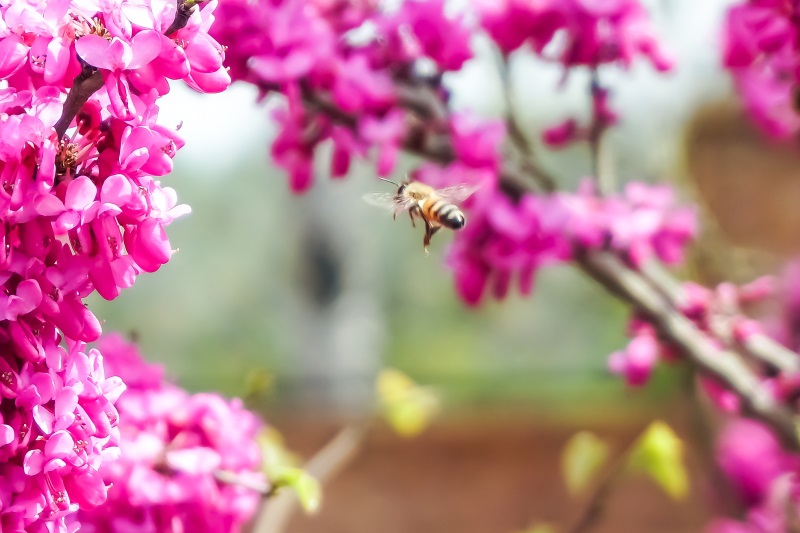5 ways to prevent hayfever
For many of us the start of summer isn’t all fun in the sun. With tree and grass pollen reaching particularly high levels at this time of year, over 10 million people in the UK will experience some form of allergic rhinitis as a result.

Allergic rhinitis, more specifically seasonal rhinitis, is often referred to as hayfever and is the name given to the inflammation of the nose in response to an allergic trigger. Seasonal rhinitis describes the body’s reaction to airborne allergens (e.g. pollen, moulds) spread by grass, trees, plants and weeds during the spring and summer months. The immune system treats the allergens as a threat, leading to the swelling of the mucous membrane inside your nose. The symptoms that follow usually mirror that of the common cold; itchy and watery eyes, headaches from nasal congestion, and tightness of the chest. Though rarely considered severe, the symptoms can be a major daily hindrance.
While there is no cure for allergic rhinitis, there are plenty of ways to prevent it. Here are our five ways to defeat Mother Nature this summer.
Apply some balm
A staple in almost every home’s medicine cabinet is a trusty pot of Vaseline. Vaseline, or other similar products such as HayMax, can be purchased from most supermarkets and pharmacies. By applying a small amount of balm around your nostrils, pollen can be trapped and prevented from entering your nose.
Get your wash on
If your daily routine involves showering first thing in the morning, consider switching it up and shower before bed. If you’ve been outside during the day you run the risk of carrying pollen on you to bed. When pollen gets onto your sheets and pillows, you may find yourself waking up already suffering from the symptoms. To prevent this, wash your bedding regularly during periods of high pollen, shower before bed as opposed to in the morning, and frequently change your clothes to keep the pollen off. Also, try to dry your washing indoors as they’ll be easy targets for pollen if hung outside.
Stay locked in
Make your home a fortress and keep windows and doors shut whenever possible. Despite finally reaching the time of year where having your windows open is both a treat and perfectly necessary, try keeping them closed when the pollen count is high. As seasonal allergic rhinitis is caused by allergens that travel with the wind, there’s a good chance they’ll find their way into your home should you leave your windows and doors open.

Filter up
A pollen filter for the air vents in your car keeps you cool and symptomless as you drive. They’re not too expensive and can be bought online or from most motoring retailers. Additionally, HEPA (high efficiency particulate air) filters can be bought for your vacuum cleaner. These filters trap pollen, as well as other common allergens, such as dust particles. Vacuuming your home regularly can be hugely beneficial for fighting off summer allergies and by adding a HEPA filter, your vacuum can collect airborne particles that may trigger a reaction.
Antihistamines
Many people find solutions for their symptoms through over-the-counter medications and home remedies. Medications such as antihistamine tablets or nasal sprays can be purchased from supermarkets and pharmacies, but may also be prescribed by your GP or doctor – always ask for their advice if you’re unsure about them.
Foods high in Vitamin C such as peppers, oranges, and kiwis, are thought to contain antihistamines. Vitamin C has also been known to work as a decongestant and may help with symptoms like a blocked nose. Garlic, onions, fish, and spicy food are not only regarded as effective antihistamine producers, but also contain anti-inflammatory properties that can tackle swelling of the eyes and nose (applying them directly to your eyes would be very unwise however). If you were considering applying something to your eyes, save the teabag from a chamomile tea and gently press it onto your sore eyes. Herbal teas such as chamomile, nettle, and ginger have also been known to induce the release of antihistamine. Hot drinks that are high in caffeine are rumoured to make your symptoms worse, so switching to herbal teas may be a good idea.

You can check the pollen forecast for where you live here.
Struggling with summer allergies? Book a consultation with Medstars’ GP, Dr Jamal Karwan, who has a special interest in allergy, here.
Medstars Medical Concierge Service
Looking for extra guidance when it comes to your healthcare? Sometimes interpreting medical information and making the best decisions can be daunting and complicated. Our private medical concierge service provides easy access to top UK health experts. We guide our patients with genuine choice and trust, offering a bespoke service for anyone in the world seeking private UK healthcare. Learn more about Medstars Medical Concierge Service. Want to learn more about providing our medical concierge service as an employee benefit? Learn more about Medstars Medical Concierge for Business.

